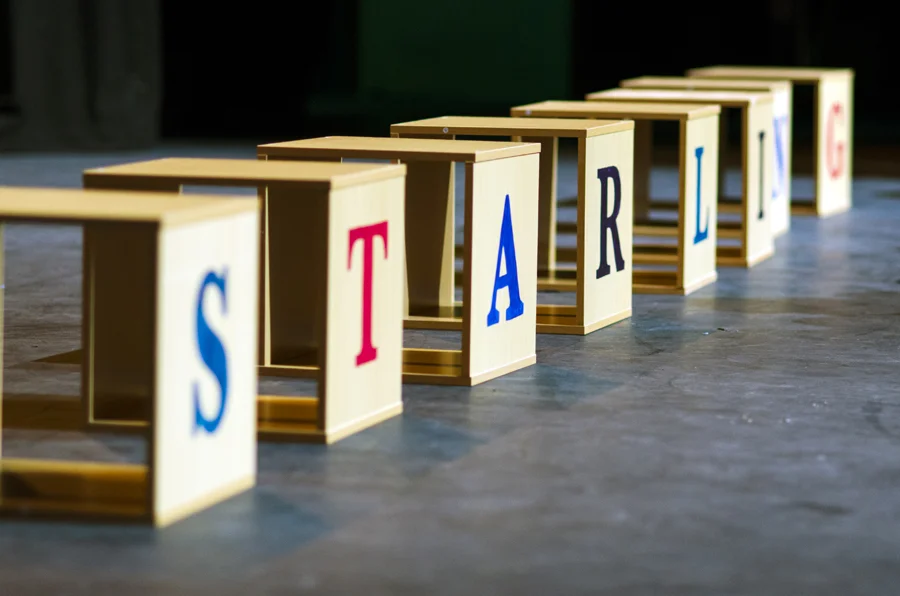Hold on to your jazz hands
/West End Producer - the anonymous, masked twitter commentator and theatre impresario - hit it on the head in the closing lines of his keynote speech at the Bath Theatre Matters conference earlier this week. Having addressed so much of what is politically and logistically vital to the arts and its sustainability, he concluded his speech by asking the audience to do the following:
All I want you to do is lift both of your hands in the air. That’s it. Lift your hands in the air. Now spread your fingers, and sway your hands side to side. And voila – you are displaying your jazz hands. Doesn’t it feel good?
The thing that helps make the world go round is our wellbeing, and art contributes to that more than most people give it credit. We can make the economic case for the arts over and over, but the emotional, ‘feel good’ case is far greater and in many ways more important.
Emily wrote last week of our philosophy about group singing, and it is a great example of a jazz hand moment - it feels good because you’re doing it together. Togetherness is at the centre of all the arts, from singing in a choir or sitting in an audience together, performing on a school stage or on a West End stage together, the shared experience of belonging to that community is like being a finger contributing to the jazz hand joy.
I grew up in a community theatre company that not only developed my singing and acting skills, but my ability to work in a team, my confidence, my mental maths (selling programmes does wonders for this), and many other skills besides. I was not only part of the community on stage, but served a community by providing them with 'feel good' moments, so it's no surprise I decided to make a career from marrying people and the arts together.
Sometimes when I explain the work of Starling Arts to someone new they respond with a quizzical sneer asking, “So it’s am dram?” “No,” I reply, “we work with communities.” Community doesn’t have to mean amateur, and even when it does, that doesn’t have to mean something is inferior and worthy of a quizzical sneer (read Lyn Gardner’s brilliant Guardian blog post on just that here). Community is at the heart of art and society at every level - it is about anyone and everyone having a particular practice and/or place in common, and that identity and ownership is what makes us feel good.
In the last couple of weeks we’ve worked with and been part of communities of varying degrees -- we ran the second Kids Week Choir in partnership with Kids Week and the Society of London Theatre, guest conducted a choral society in NW London, devised plans for publishing a new musical we’re contributing to and, of course, worked with the singers in our three choirs. The ‘jazz hand’ impact of these ventures ranges from national to local and doesn’t just affect those we immediately shared the experience with, but the lives, and hopefully wellbeing, of their extended communities:
A parent from the Kids Week Choir tweeted us to say she and her child went home to perform the songs we’d sung together in their living room; a choir member updated their Facebook status to comment that we’d had the ‘Funniest rehearsal ever’. On a personal note, our own wellbeing is lifted through doing a job we love and, by extension, the lives of those we interact with are hopefully enriched through our own contentment.
However, just as community is at the heart of art and society, so is politics: the form, content, funding, policy, acceptance and reception of the arts is dictated by, in response to, and rooted in politics. Sadly, much of the arts' fate is tied up in the hands of a system which, to quote West End Producer again, sees “the cost of everything but not the value.”
I believe everyone has a story to tell about how art has added value to their life because the arts, and the communities that serve them, are essential to our lives -- hold tightly to them, fight for them, sing out about them and nurture them because if we don’t, the jazz hands will die out.
- Anna


